
The articles on this website may be reproduced freely as long as the following source reference is provided: Joseph A Islam www.quransmessage.com

Salamun Alaikum (Peace be upon you)

The articles on this website may be reproduced freely as long as the following source reference is provided: Joseph A Islam www.quransmessage.com

Salamun Alaikum (Peace be upon you)
PYRAMIDS, GIZA, EGYPT
![]()
Copyright © 2009 Joseph A Islam: Article last modified 16th October 2011
EXCERPTS FROM MY TRAVEL BLOG
The Pyramids at Giza's plateau no doubt stood mighty. A desolate reminder of what once was a mighty kingdom of the ancients.
019.098
"And how many (countless) generations before them have We destroyed? Can you find a single one of them (now) or hear (so much as) a whisper of them?"
015.011-13
“And there never came a messenger to them but they mocked him. Thus do We make it to enter into the hearts of the guilty. They do not believe in it, and indeed the example of the former people (Arabic: Sunnatu-lawalina) has already passed.
048.023
“(Such has been) the practice of God
(Arabic: Sunnata-llahi) already in the past: no change will you find in the practice of God (Arabic: Sunnata-llahi)”
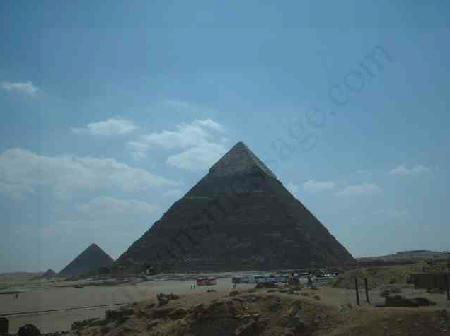
Picture Copyright © Joseph Islam. All rights reserved
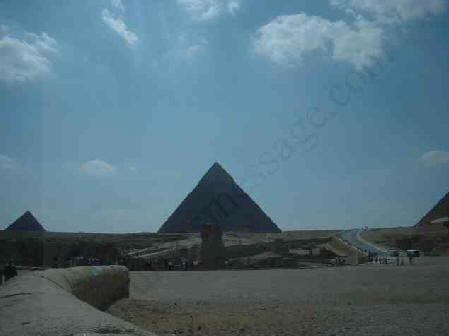
Picture Copyright © Joseph Islam. All rights reserved
The common translation of the Quranic phrase 'firunu dhul-awtad' as ‘Pharaoh, the Lord of the Stakes’ was always a little unconvincing.
038.012
"Before them (were many who) rejected messengers,- the people of Noah, and 'Ad, and Pharaoh, the Lord of Stakes (Arabic: Awtad)"
Many English translators imparted other renderings. 'Pharaoh firmly planted'; 'Firon, the lord of spikes'; 'Pharaoh the contriver of stakes'; 'Pharaoh, he of the tent-pegs'
AN ALTERNATIVE RENDERING FROM A QURANIC PERSPECTIVE
The word 'Awtad' to describe mountains.
In verse 78:7, the mountains are described as 'Awtad'. Many traditional commentators connect this to verse 16:15 where the stabilising nature of the mountain is referred to. However, the 'Awtad' in 78:7 to describe mountains could also be a specific reference to the projection from the earth in the shape of 'tent pegs'. This certainly seems to be the case if 78:7 is read in context with the previous verse where the Earth is referred to as being spread out or a wide expanse and the mountains as 'Awtad' (i.e. a projection).
Certainly the Quran’s primary audience were the Bedouins and any reference to mountains serving as pegs into the ground stabilising the Earth is far fetched as this would not have been visible to the Pagan Arabs who had no recourse to modern 21st century geology. The reference is almost certainly therefore an allusion to a ‘projection’ from the Earth in the shape of tent pegs, i.e. Awtad.
078.006
Have We not made the earth as a wide expanse
078.007
And the mountains as pegs (Awtad)?
An Ancient Tent Peg (Inverted)
(Surface Illustration: Joseph Islam)
Relying solely on passage 78:7; Pharaoh can be thus referred to as 'Pharaoh of the Mountains' as mountains have been referred to as ‘Awtad’. However, the only 'mountains' or ‘projections’ that the Bedouin Arabs were likely to visualise during their travels in Egypt which alluded to Pharaoh’s might in terms of physical constructs would be the pyramids. This would have seemed to them as 'pointed tent pegs' i.e. 'Awtad' projecting from the surface of the Earth. Thus a more consistent rendering from a Quranic perspective would be 'Pharaoh, Lord of the Pyramids' which would also take into account Surah Fajar (89) where Ad and Thamud's man-made constructs are being alluded to.
(Please see complete article [1] below).
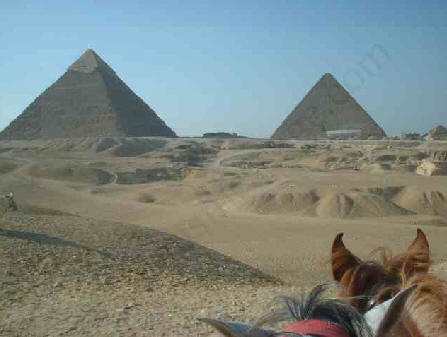
Picture Copyright © Joseph Islam. All rights reserved
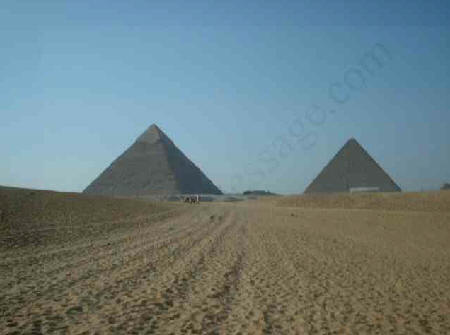
Picture Copyright © Joseph Islam. All rights reserved
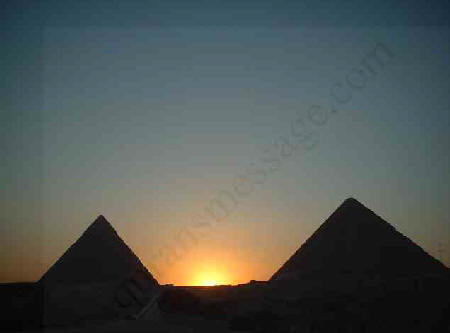
Picture Copyright © Joseph Islam. All rights reserved
![]()
Related Articles:
Related Section:
© 2010 Quransmessage.com All Rights Reserved